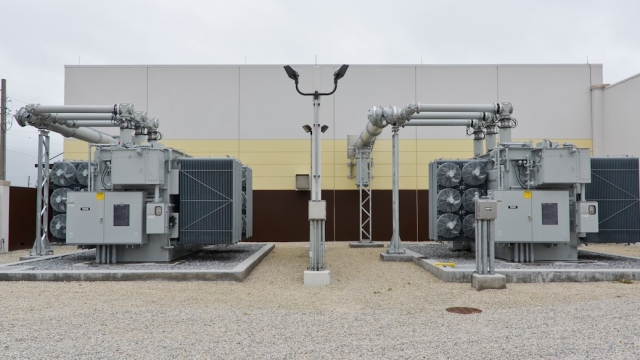Understanding Energy Management Services Definition and Importance
Energy management is an essential aspect of operating efficiently in today’s energy-conscious environment. Businesses of all sizes are increasingly recognizing the necessity of managing their energy use effectively. energy management services provide organizations with the tools and expertise needed to optimize energy consumption, reduce waste, and promote sustainability. This article will explore the definition and importance of energy management services, the benefits they offer to businesses, and guidance on choosing the right service provider.
Understanding Energy Management Services: Definition and Importance
Energy management services encompass a range of practices aimed at improving energy efficiency and reducing consumption. These services typically involve monitoring, controlling, and conserving energy in a systematic manner. The importance of energy management services lies in their ability to help organizations navigate the complexities of energy usage, which can significantly impact operational costs and environmental sustainability. By employing energy management services, businesses can identify inefficiencies, implement energy-saving measures, and ultimately achieve a more sustainable operation. In an era where energy costs can be a substantial portion of operational expenses, these services are not merely beneficial; they have become essential for long-term viability and competitiveness.
Key Benefits of Energy Management Services for Businesses
The benefits of implementing energy management services are extensive. Here are some key advantages that organizations can expect:
1. Cost Savings
One of the primary motivations for adopting energy management services is the potential for significant cost savings. By optimizing energy usage, businesses can reduce their utility bills and overall operational costs. These savings can accumulate over time, leading to substantial financial benefits.
2. Improved Energy Efficiency
Energy management services facilitate the identification of areas where energy is being wasted. This insight allows businesses to implement changes that enhance energy efficiency, such as upgrading equipment or optimizing processes. Improved efficiency not only lowers costs but also contributes to a reduced carbon footprint.
3. Enhanced Sustainability
Many organizations are committed to corporate social responsibility and sustainability goals. Energy management services play a crucial role in helping businesses achieve these objectives by promoting the use of renewable energy sources and reducing greenhouse gas emissions. This commitment can enhance a company’s reputation and appeal to environmentally-conscious consumers.
4. Regulatory Compliance
Staying compliant with regulations regarding energy use and emissions is critical for many businesses. Energy management services can provide the necessary guidance and support to ensure compliance with local and national regulations, thereby avoiding penalties and legal issues.
5. Data-Driven Decision Making
With advanced monitoring and reporting capabilities, energy management services provide businesses with valuable data regarding their energy consumption patterns. This data can inform strategic decisions, enabling organizations to make informed choices about energy use and efficiency improvements.
How to Choose the Right Energy Management Service Provider
Selecting the right provider for energy management services is crucial for maximizing the benefits. Here are some key factors to consider during the selection process:
1. Experience and Expertise
Look for a provider with a proven track record in the energy management sector. Their experience can significantly influence the success of your energy management efforts.
2. Range of Services
Evaluate the scope of services offered by potential providers. A comprehensive approach that includes energy audits, monitoring, and reporting can be more beneficial than a limited service offering.
3. Technology and Tools
Inquire about the technology and tools that the provider uses to deliver their services. Effective energy management often relies on sophisticated monitoring and analysis tools that can enhance efficiency and reporting.
4. Customer Support and Training
Consider the level of ongoing support and training that the provider offers. A good partner will not only implement solutions but will also help your team understand and utilize them effectively.
5. References and Case Studies
Request references and case studies from potential providers to gauge their effectiveness and reliability. Real-world examples can provide insight into what you can expect from the partnership.
| Beneficio | Descripción |
|---|---|
| Ahorro de Costos | Reducción de facturas de energía mediante optimización del uso. |
| Eficiencia Energética | Identificación y eliminación de ineficiencias en el consumo. |
| Sostenibilidad | Mejora de la huella de carbono a través de prácticas responsables. |
| Conformidad Regulatoria | Aseguramiento del cumplimiento de normativas energéticas. |
In conclusion, energy management services are vital for businesses looking to improve their operational efficiency, reduce costs, and promote sustainability. By understanding the significance of these services and the benefits they offer, organizations can make informed decisions about energy management. When choosing a provider, considering factors like experience, range of services, and customer support will help ensure a successful partnership in optimizing energy usage. For more information about effective energy management services, you may find valuable insights at [Jetgenset](https://www.jetgenset.com).

